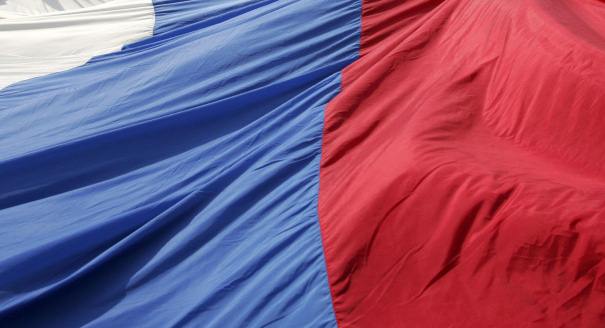Dmitri Trenin
{
"authors": [
"Dmitri Trenin"
],
"type": "commentary",
"centerAffiliationAll": "",
"centers": [
"Carnegie Endowment for International Peace",
"Carnegie Russia Eurasia Center"
],
"collections": [],
"englishNewsletterAll": "",
"nonEnglishNewsletterAll": "",
"primaryCenter": "Carnegie Russia Eurasia Center",
"programAffiliation": "",
"programs": [],
"projects": [],
"regions": [],
"topics": []
}
Source: Getty
In the Wake of June 12
The issue is how to transform the post-imperial polity which is today’s Russia into a nation state.
Independence from oneself certainly sounds absurd, as Lilia Shevtsova rightly points out. Sensing this, Maria Lipman adds, the name of the Russian national day was subsequently changed to just “Russia Day.” Nikolay Petrov notes that ordinary citizens do not think in geopolitical terms, as authoritarian leaders do. Standards of living and quality of life, not the size of the landmass with which they can nominally identify themselves, are what they value most.
Yet, Shevtsova poses a crucial question: if June 12 de facto stands for Russians’ self-liberation from their historical empire—we both agree here—this liberation is far from complete. For one, the Russian Federation includes a number of territories and populations—the North Caucasus immediately jumps to mind—which are far less integrated into the whole than were most of the Soviet republics in 1991. The Russian Federation, Shevtsova argues, is still an empire, if on a reduced scale.
My view is that Russia’s empire is history, in geopolitical terms. Empires, however, are not so much about the vastness of territory as about the way that this territory is held together. Small is not always beautiful, and big is not necessarily ugly. Shevtsova makes this point indirectly when she blames Boris Yeltsin’s quest for power for aborting Mikhail Gorbachev’s effort to democratize the Soviet Union. Two decades later, the issue, in my view, is how to transform the post-imperial polity which is today’s Russia—and the “post-” suggests that the evolution is not complete—into a nation state.
This does not require that all those who live in such as state are ethnic Russians or are recognized as honorary Russians. The country’s population is, and will remain multi-ethnic. It requires rather that the population of former imperial subjects becomes a nation of citizens. It is only when people start feeling themselves citizens that a nation emerges. Citizenship means not so much common language and shared experience as agreement on the first principles and some basic values.
Today’s post-imperial Russia is still far away from that. Fewer older Russians remember what actually happened in June 1990, and few younger ones care. It is a good thing that Russia’s national holiday is in midsummer rather than in the late fall. As Petrov remarks, Russia Day has become akin to “city days” which are celebrated across the country and are marked with merry parades and festivities. People are taking a break, which is fine, but the task of nation-building still lies ahead for them. And that task is never easy—as Tom de Waal writes this week from Istanbul and Petr Topychkanov recalls with reference to India’s Allahabad in 1975.
About the Author
Former Director, Carnegie Moscow Center
Trenin was director of the Carnegie Moscow Center from 2008 to early 2022.
- Mapping Russia’s New Approach to the Post-Soviet SpaceCommentary
- What a Week of Talks Between Russia and the West RevealedCommentary
Dmitri Trenin
Recent Work
Carnegie does not take institutional positions on public policy issues; the views represented herein are those of the author(s) and do not necessarily reflect the views of Carnegie, its staff, or its trustees.